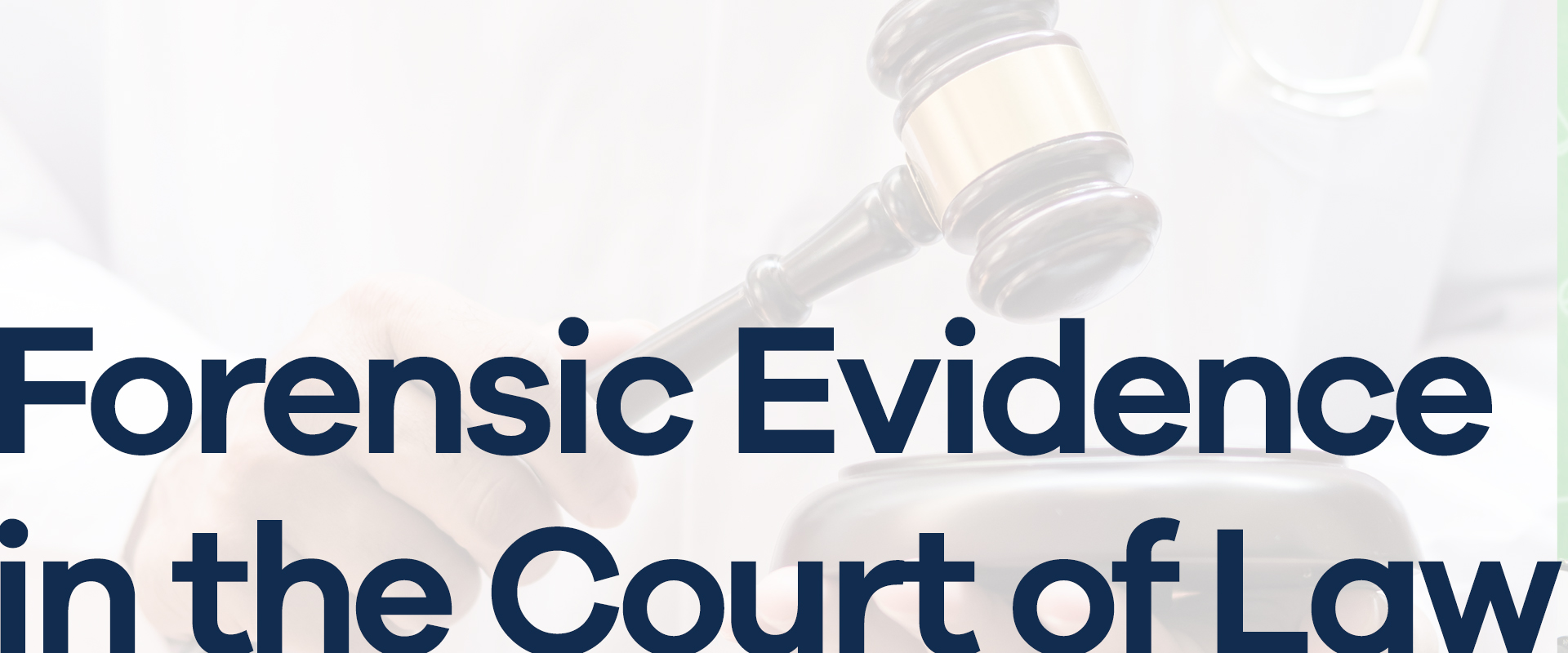
Forensic Evidence in the court of Law
The aim of this course is to promote a critical thinking with regard to forensic Evidence. What evidentiary value is being given to such evidence by Pakistani courts and what ought to be, in the light of global acceptability of this evidence. The cases decided by Pakistani courts are to be compared with the decided cases by other jurisdictions of the world to have a comparative analysis of the law being developed in Pakistan. Special emphasis has been given on, how forensic evidence is collected, preserved and adduced before the court of law. The course comprises a mix of taught and hands-on training modules supplemented by the field visits. In the end, the course learning outcomes are assessed through role playing and simulations.
Industry Experts/Trainers:
Syed Ijaz Qutub is a senior lawyer and retired District and Sessions judge as well as former senior editor of rules and orders of the Lahore high court. With the experience of spanning over half a century including active practice in the courts and judicial service. He has been a regular consultant/trainer/professor at Federal Judicial Academy, Punjab Judicial academy, NIPA, Civil services academy, Punjab Prosecution department, and University of Central Punjab.
Mr. Abubakar Nauman Qazi is a British Chevening scholar and post grad from Warwick law school besides being a grad from Siracusa Institute of Higher Studies in Criminal Sciences. Italy. He is serving as Deputy Prosecutor General performing his duties in Lahore High Court. He is also director of the Prosecution training academy. He has worked in different capacities in past like law officer counter terrorism prosecutions, head of provincial coordination and director academics, CPD.
Dr. Javed Iqbal holds Ph.D. in Forensic Biotechnology and MS in Genetics with experience in DNA evidence, Population Genetics, Genomics and haplotype data analysis. He is an expert in analysis and interpretation of forensic evidence using cutting edge technologies such as capillary electrophoresis, DNA sequencing and genome analysis. He has worked extensively in the field to provide expertise in a variety of disciplines such as DNA testing, fingerprint analysis, bloodstain pattern analysis and crime scene investigations. He is also highly skilled in developing new approaches to the analysis of crime scene evidence, as well as developing and conducting training courses in forensic science.
Mr. Faraz Ali. has 24 years of international and Pakistan career as a Field Engineer, Government Officer, and Lecturer in the field of Information Security, Computer Networks and Digital Forensics, Administration, Tier III Datacenter designing, Implementation, and configuration, and Network Security, Information Security, Networking, Senior Field engineer. His academic action research strand focuses on multidisciplinary curriculum development, including advanced learning, and participatory engagement in a collaborative research environment to support teaching & learning in the education sector. Practice advanced teaching techniques for a better understanding of the course for the students.
Modules:
- The Value of Supply Chain in the age of Industry 4.0
- Digital Supply Chains
- Industrial/Internet of things (IoTs, IIoTs)
- E-commerce
- Business analytics and the art of Data Storytelling
- Optimizing Supply chains E-commerce
- Procurement/E-Procurement
- Category Management
- Demand Management
- Beer Game. Supply Chain Simulation: Bullwhip Effect
- Role of S&OP, CPFR
- Inventory Optimization
- Role of Technology in Managing Supply Chains
Who Should Apply
Law graduates, Prosecutors, Trial Judges and Forensic scientists
Eligibility criteria
Graduation in the relevant subjects
Learning Outcomes:
At the end of this course, you will be able to,
1. Develop a critical judgement towards forensic Evidence
2. Promote a sound administration of forensic results in the criminal justice system
3. Realize the importance of probabilities and probabilistic reasoning in forensic science
4. Explain that scientific results may or may not be the absolute (even with DNA or finger-marks)
5. Learn lessons from past cases, some of them being miscarriages of justice involving forensic science

6 Days
day

4 hours
day
Learning Investment:
Rs. 25,000/-